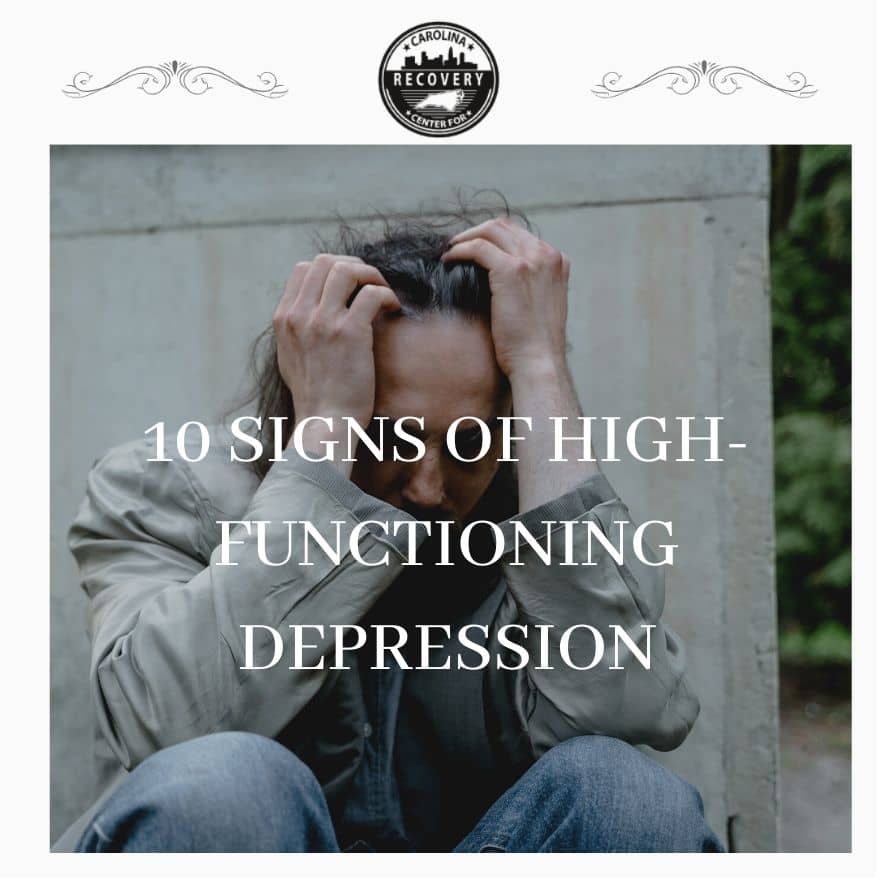10 Signs You’re Struggling With High-Functioning Depression

Medically Verified: 2/1/24
Medical Reviewer
Chief Editor

All of the information on this page has been reviewed and verified by a certified addiction professional.
When you think of depression, you might imagine someone who is sad, has a low mood and energy, and cannot cope with daily life. But depression is a complex condition, and people often experience it in various ways.
Depression affects more than 17.3 million adults in the United States. Depression usually impacts the way a person thinks, feels, and behaves. Sometimes, depression is so debilitating that a person cannot work, maintain relationships, or care for their basic needs. Other forms of depression may be less severe. People with high-functioning depression often continue to work, go to school, care for children, and maintain relationships.
All forms of depression can have a significant impact on a person’s life and require treatment. For more information about treating high-functioning depression or for help with substance abuse or addiction, reach out to the Carolina Center for Recovery specialists.
What is High-Functioning Depression?
When someone lives with depression that still allows them to participate in their daily lives as usual, it’s known as high-functioning depression. Sometimes, people with high-functioning depression have milder symptoms of depression. People with high-functioning depression often “mask” their symptoms to hide the condition from others.
Some common symptoms of depression include:
- Low energy, fatigue, or feeling “slowed down”
- Feeling sad, anxious, or empty much of the time
- Pessimism
- Hopelessness
- Guilt and worthlessness
- Loss of interest in hobbies and activities
- Difficulty with sleep, including oversleeping or early morning awakening
- Physical symptoms like aches, pain, headaches, cramps, and digestive issues with no underlying cause
- Thoughts of suicide or self-harm
- Suicide attempts
People may not experience every depressive symptom, and symptoms can vary and change throughout the course of their depression.
It can be hard to identify people with high-functioning depression because they may appear to be functioning as usual. But all forms of depression require care and treatment.
10 Signs of High-Functioning Depression
Identifying high-functioning depression is the first step toward getting treatment for it. Here are ten signs of high-functioning depression.
1. Frequent crying
Sadness is one aspect of depression. Someone with high-functioning depression may become tearful frequently or easily.
2. Lower productivity
Depression can feel exhausting. People with high-functioning depression may lack their usual energy, become less productive, or experience a general decrease in their activity. They may appear to lack energy, even if they seem to get enough sleep.
3. Fewer hobbies
Depression can keep people from experiencing joy or pleasure. Many people with high-functioning depression stop participating in hobbies or activities they once enjoyed because they simply stop feeling enjoyable.
4. Appetite change
People with depression often eat much more or much less than they used to. Sudden, rapid weight gain or loss could indicate that someone is living with high-functioning depression.
5. Sleep troubles
A significant symptom of depression is trouble with sleep. People may sleep too much–more than 10 hours a day for teens and adults–or may be unable to fall and stay asleep. Frequently waking up early in the morning and being unable to fall back asleep can be a sign of depression.
6. Self-critical
People with depression may struggle with feelings of worthlessness, guilt, or regret. They may make self-critical comments or frequently talk about what they wished they had done differently in the past.
7. Hopelessness
People with depression may feel hopeless about the future. They may make frequent, hopeless comments or talk negatively about the future.
8. Poor concentration
Many people with depression may struggle with poor memory and concentration. They may have difficulty staying on task at work or school or forget things more frequently. School and work performance may suffer, and they may neglect everyday chores and self-care.
9. Mood changes
Depression can make people’s mood change quite a bit. Sadness, irritability, anger, and negativity are common. People may have short tempers or feel easily annoyed by others.
10. Thoughts of death and suicide
People with depression may have frequent thoughts about dying. People may think about self-harm or suicide frequently and may talk about it openly. Some people may plan how they might end their lives, and some may follow through on these plans.
Risks of High-Functioning Depression
People with depression require treatment to help them manage the symptoms of this condition. Without treatment, depression often gets worse.
People with high-functioning depression often get stuck in a destructive pattern. They may pretend that everything is fine or feel guilty about being depressed, which leads to more negative thoughts about themselves. These thoughts can worsen depression.
Untreated depression can significantly harm a person’s physical health and well-being. People with depression may use drugs and alcohol to self-medicate. They may neglect their work, health, and relationships until they face severe harm.
Some people with depression develop thoughts of self-harm and suicide. It’s essential to get treatment for all forms of depression to avoid the serious, life-threatening consequences of the condition.
Get Help Now
If you or someone you love need treatment for high-functioning depression or substance abuse and addiction, reach out to the Carolina Center for Recovery specialists today.

